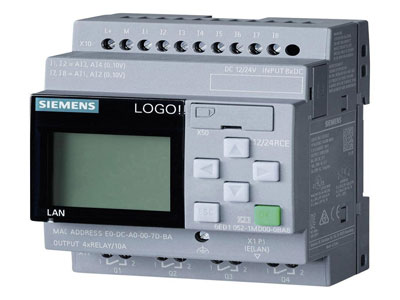What Is A PLC Engineer?
Key Takeaway
A PLC engineer designs, maintains, and troubleshoots systems using programmable logic controllers. They develop and implement PLC programs to automate machinery and processes in industrial environments. PLC engineers also configure and test hardware, ensure system efficiency, and enhance safety. They diagnose issues, perform regular updates, and optimize performance. Their role is crucial for automating tasks, improving reliability, and reducing downtime in manufacturing and other industries. Strong technical skills, problem-solving abilities, and knowledge of various PLC programming languages are essential for a PLC engineer.
Role and Responsibilities of a PLC Engineer
PLC engineers are responsible for developing and optimizing PLC-based control systems to enhance productivity, efficiency, and safety in industrial settings. Their duties encompass designing control logic, programming PLCs using specialized software, testing and debugging programs, and integrating PLC systems with other automation components such as sensors, actuators, and human-machine interfaces (HMIs). Additionally, they conduct system upgrades, perform routine maintenance, and provide technical support to ensure uninterrupted operation of PLC systems.

Educational Requirements
To step into the role of a PLC engineer, having the right educational background is fundamental. Typically, this means holding a bachelor’s degree in electrical engineering, automation engineering, or a closely related field. These academic paths provide students with the foundational knowledge and skills needed to excel in the field of industrial automation.
However, it’s essential to note that some employers may also consider candidates with diplomas or associate degrees in fields like industrial automation or instrumentation technology. While these qualifications may not delve as deeply into the theoretical aspects as a bachelor’s degree, they often focus on practical skills relevant to PLC engineering, making them valuable in the eyes of potential employers.
Moreover, obtaining certifications in PLC programming and automation technologies can significantly bolster one’s credentials and increase job opportunities. These certifications serve as tangible proof of proficiency in PLC programming and familiarity with industry-standard automation tools and practices. By combining formal education with relevant certifications, aspiring PLC engineers can position themselves as competent professionals ready to tackle the challenges of the industrial automation sector.
Skills and Competencies
To thrive as a PLC engineer, one must possess a diverse skill set tailored to meet the demands of the role. Mastery of PLC programming languages like Ladder Logic, Structured Text, Function Block Diagram, and Sequential Function Chart forms the cornerstone of proficiency in this field. These languages serve as the primary tools for designing, implementing, and troubleshooting PLC systems, allowing engineers to translate automation requirements into functional code efficiently.
Additionally, strong analytical skills are indispensable for dissecting complex automation challenges and devising effective solutions. A keen eye for detail is equally crucial, enabling engineers to identify subtle discrepancies in system behavior and rectify them promptly. Moreover, adept problem-solving abilities empower PLC engineers to navigate through intricate automation issues with confidence, ensuring minimal disruptions to industrial processes.
Furthermore, effective communication skills are vital for fostering collaboration within cross-functional teams comprising engineers, technicians, and project managers. Clear and concise communication facilitates seamless information exchange and promotes alignment towards common automation objectives. By honing these skills and competencies, PLC engineers can navigate the dynamic landscape of industrial automation with competence and finesse, driving operational efficiency and innovation in the process.
Typical Work Environment
PLC engineers inhabit a dynamic work environment that encompasses a variety of settings within the industrial landscape. From bustling manufacturing floors to the more controlled atmosphere of laboratories or office spaces, these professionals navigate diverse terrains as they engage with automation systems. In manufacturing facilities and industrial plants, PLC engineers immerse themselves in the heart of operations, where they oversee the seamless integration of PLC systems into production processes. They collaborate closely with colleagues, including engineers, technicians, and operators, to ensure the efficient functioning of automation equipment and machinery.
Beyond the shop floor, PLC engineers may find themselves stationed in control rooms, where they monitor system performance and make real-time adjustments to optimize operational efficiency. Additionally, their roles may require them to venture into office environments, where they engage in project planning, design, and analysis. Flexibility is key in this domain, as PLC engineers may need to adapt to varying work schedules, including regular hours or shift work, to provide round-the-clock support for critical operations. Regardless of the setting, PLC engineers bring their expertise to bear in enhancing industrial automation, driving productivity, and fostering innovation in the pursuit of operational excellence.
Career Growth and Opportunities
In the realm of industrial automation, PLC engineers are poised for a journey filled with avenues for growth and advancement. Beginning as assistant PLC engineers or junior automation engineers, individuals step into roles that serve as foundational platforms for acquiring hands-on experience and learning from seasoned professionals. As they accumulate knowledge and skills over time, PLC engineers can ascend to more senior positions such as lead automation engineers, project managers, or esteemed automation consultants. In these elevated roles, they take charge of overseeing intricate projects, managing teams, and contributing to strategic decision-making processes.
Furthermore, the field offers opportunities for specialization, allowing PLC engineers to delve into specific industries or emerging technologies. By honing expertise in niche areas, they can broaden their career horizons and unlock new pathways for professional development. Whether it’s mastering the intricacies of automotive manufacturing, aerospace engineering, pharmaceutical production, or exploring cutting-edge advancements in robotics or artificial intelligence, PLC engineers have the flexibility to carve out rewarding career trajectories tailored to their interests and aspirations.
Conclusion
In conclusion, PLC engineers play a pivotal role in driving innovation and efficiency in industrial automation. Their expertise in designing, programming, and maintaining PLC systems is essential for optimizing production processes, improving quality, and ensuring operational reliability in diverse industries. As technology continues to evolve, the demand for skilled PLC engineers is expected to grow, making them indispensable contributors to the future of automation. By staying abreast of industry trends, honing their skills, and embracing new challenges, PLC engineers can continue to make significant contributions to the advancement of automation technologies and the industries they serve.
